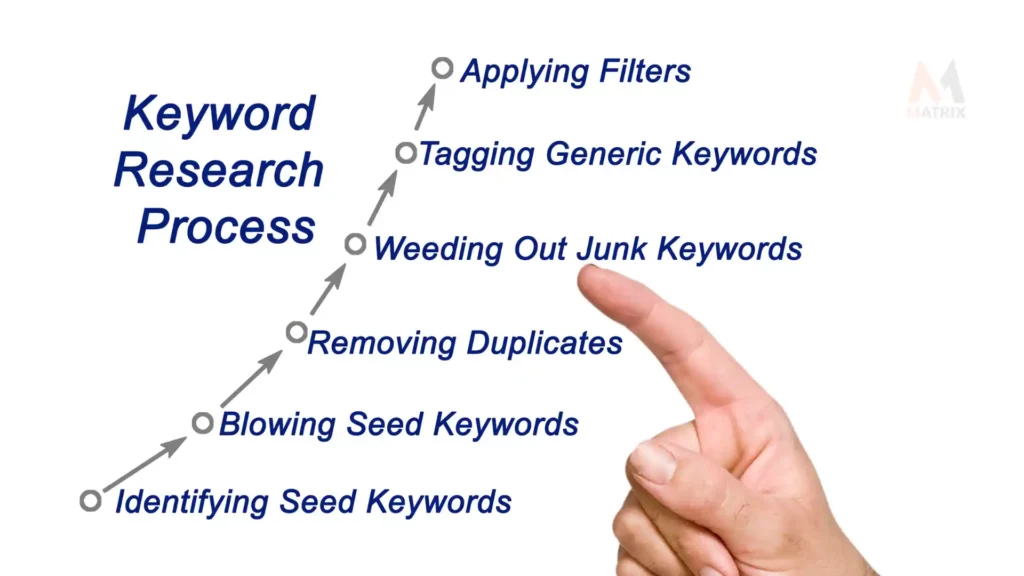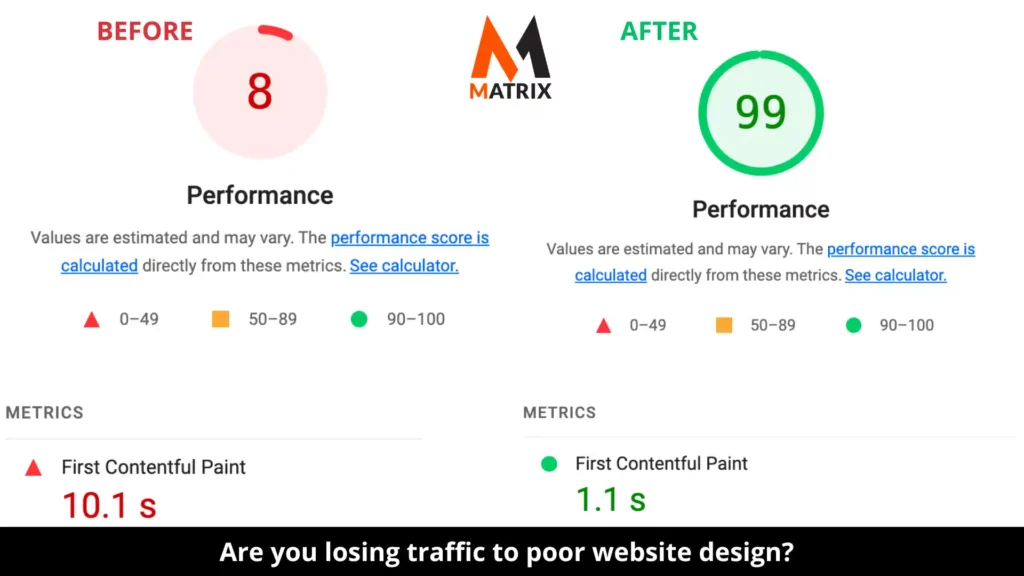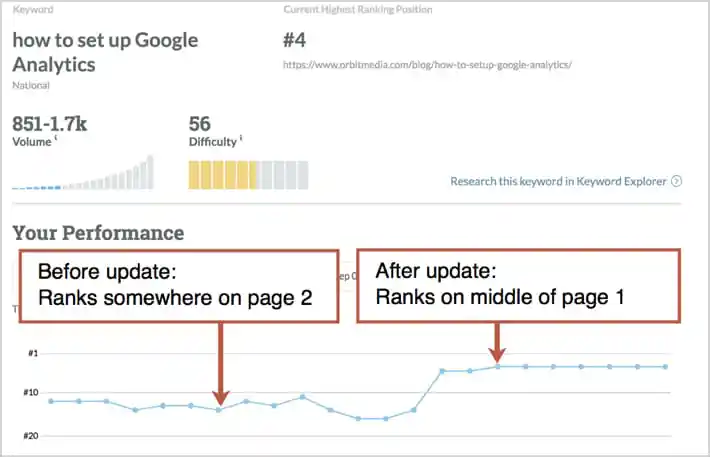Find and Fix Keyword Cannibalization in 6 Steps.
Learn How to Find and Fix Keyword Cannibalization in 6 Steps.
Are you dealing with cannibalization in your marketing efforts? If so, you are not alone. Many marketers need help to identify and fix this tricky issue.
Still, with the right workflow background information, taking charge of your keyword-competitive content marketing strategy for the better is possible. SEO Pricing Guide: How Much Does SEO Cost In 2025?
Impact of Keyword Cannibalization on a 100-Page Website
Keyword cannibalization can significantly negatively impact a website’s search engine optimization (SEO) performance, especially for a website with 100 pages. Here are some of the key ways it can harm your site:
- Diluted Authority: When multiple pages target the same keyword, it sends mixed signals to search engines and dilutes your website’s overall authority. As a result, none of your pages may rank as well as they could if they were individually optimized for unique keywords.
- Reduced Click-Through Rate (CTR): If multiple pages appear in search results for the same keyword, users are more likely to click on the first or second result, reducing the overall CTR of your other pages. This can negatively impact your website’s ranking and organic traffic.
- Internal Link Competition: When multiple pages compete for the same ranking, they also compete for links from other pages on your website. This can weaken the link profile of all pages involved, further hindering their ranking potential.
- Wasted Crawl Budget: Search engines have a limited crawl budget, determining how many pages they can crawl and index on your website. Multiple pages targeting the same keyword can waste a valuable crawl budget that could be used on other, more relevant pages.
- Content Redundancy: Keyword cannibalization can lead to repetitive content across your website, which is not engaging for users and can be penalized by search engines.
Fixing Keyword Cannibalization on a 100-Page Website
Fortunately, several ways exist to fix keyword cannibalization and improve your website’s SEO performance. Here are some steps you can take:
- Identify Cannibalized Keywords: Use SEO tools like Semrush, Ahrefs, or Screaming Frog to identify pages targeting the same keywords.
- Analyze the Pages: Evaluate the quality and relevance of each page for the target keyword. Determine which page is the most authoritative and valuable.
- Consolidate Pages: Merge the content of the weaker pages into the stronger ones. This can involve redirecting old URLs, updating internal links, and removing duplicate content.
- Optimize the Main Page: Optimize the chosen page for the targeted keyword by improving its content, title tags, meta descriptions, and internal linking.
- Noindex or Canonicalize Duplicate Pages: If merging is not feasible, consider using noindex robots meta tags to prevent search engines from indexing irrelevant pages. Alternatively, use canonical tags to point to the main page from duplicate pages.
- Monitor and Update: Regularly monitor your website for new instances of keyword cannibalization and continue to optimize your website’s content and structure for improved search engine ranking.
For a 100-page website, it might be helpful to prioritize fixing keyword cannibalization for your most important keywords and pages first. You can also use project management tools to organize tasks and track progress. Automated Keyword Discovery: A Game Changer for SEO
Here are some additional resources that you may find helpful:
Remember, fixing keyword cannibalization is an ongoing process. Regularly auditing your website and implementing the abovementioned strategies can improve your website’s ranking and attract more organic traffic.
Here, we will explore how you can easily fix and detect keyword cannibalization in 5 simple steps – allowing you to boost SEO performance and improve rankings faster than ever! You will learn how to fix keyword cannibalization and what is keyword cannibalization in SEO.
What is Keyword Cannibalization

Keyword cannibalization refers to a condition where multiple pages on a website are trying to rank for the same keyword. This often leads to confusion for users and search engines, ultimately affecting rankings.
While having a clear and cohesive content strategy is important, ensuring that each page targets a unique focus keyword is equally important. Failing to do so can result in diluted ranking potential and lower overall visibility.
Avoiding keyword cannibalism can be achieved by conducting thorough keyword research, optimizing individual pages for specific keywords, and ensuring your website’s navigational structure is intuitive and easily understandable.
Following these best practices can help increase your website’s visibility and overall search engine rankings.
Your Blueprint for SEO Success in 2025
Whether you’re a business owner, marketer, or seasoned SEO professional, this guide is tailored to give you a competitive edge in the evolving digital landscape. Get SEO Pricing.
How do I Find Keyword Cannibalization?

SEO cannibalization is an issue that plagues many websites yet often goes unnoticed. It occurs when multiple pages on your website are trying to rank for the same keyword. This will show you how to avoid keyword cannibalization. SEO keyword cannibalization will harm website traffic and sales.
This can confuse search engines and ultimately hurt your website’s ranking. So, how do you spot cannibalization? One key indicator is seeing multiple pages on your website with similar titles or content.
If you notice a drop in traffic or ranking for a specific keyword, it may be due to cannibalization.
Keyword (KW) cannibalization occurs when multiple pages on your website are optimized for the same keyword or phrase, causing them to compete against each other in search results.
Drive Better Results with a Complimentary Marketing Audit
Take the guesswork out of your marketing strategy. Our Free Marketing Audit is designed to analyze your current efforts, identify gaps, and uncover growth opportunities. Whether you’re struggling with low ROI, limited engagement, or unclear targeting, we’ll provide actionable insights to help you achieve your business goals.
How to Spot Keyword Cannibalization on Your Website
Here are some steps you can take to identify and address cannibalization:
- Conduct a site audit: Use a website auditing tool like SEMrush or Ahrefs to analyze your website’s content and identify pages targeting the same keyword or phrase.
- Check your analytics: Look at your website’s analytics data to see which pages get the most traffic and which keywords drive that traffic. This can help you identify pages that may be cannibalizing keywords from other pages.
- Check search engine results: Search for the target keyword or phrase on Google and see which pages on your site are appearing in the search results. If multiple pages are appearing, it may be an indication of cannibalization.
- Consolidate content: Once you’ve identified pages that cannibalize keywords, consolidate the content into a single page. This can involve combining the content from multiple pages or redirecting some pages to the main page.
- Update your internal linking: Ensure your internal linking structure is optimized to avoid cannibalization. This means linking to the main page from other pages on your site rather than linking to other pages targeting the same keyword.
By taking these steps, you can identify and address cannibalization on your website, helping to improve your search engine rankings and drive more traffic to your site.
By regularly monitoring your website’s content and ranking performance, you can catch and address any instances of cannibalization, ultimately keeping your website optimized and competitive in search results. Site Speed Optimization: Better User Experience
How do I Fix Keyword Cannibalization on My Website?

KW cannibalization occurs when multiple pages on your website target the same keyword or set of keywords, causing them to compete for search engine rankings. How to solve keyword cannibalization Keyword cannibalization SEO methods must be used.
This can dilute your SEO efforts and make it harder for the right page to rank for the targeted keyword.
Content That Converts: Transparent Pricing for Maximum ROI
Explore Matrix Marketing Group’s Flexible Pricing Plans for Premium Content and Marketing Solutions Tailored to Your Goals.
To fix KW cannibalization on your website, follow these steps:
- Identify cannibalization issues: Use tools like Google Search Console, Google Analytics, or a dedicated SEO tool like Ahrefs, SEMrush, or Moz to find pages targeting the same keywords. You can also perform a site search on Google by typing “site:yourdomain.com keyword” to see which pages are ranking for a specific keyword.
- Evaluate content quality: Review the content on the affected pages and assess their quality. Determine if they provide unique and valuable information or if they are repetitive and offer little value to users.
- Choose a primary page: Decide which page is the most relevant and valuable for the targeted keyword(s) and make that the primary page. This is the page you want to rank for the given keyword(s).
- Consolidate or repurpose content: Depending on your evaluation, you can take one or more of the following actions:
- Merge: Combine similar or overlapping content into a comprehensive resource. This may involve updating the primary page or creating a new one with the most valuable information from all the cannibalizing pages.
- Repurpose: Modify the content on the cannibalizing pages to target different keywords or focus on different aspects of the topic. This can involve updating titles, meta descriptions, headers, and body content.
- Remove: If the cannibalizing pages offer no unique value, consider removing them from your site and redirecting them (using 301 redirects) to the primary or relevant pages.
- Update internal links: Ensure that your internal linking structure supports your primary page by linking to it from other relevant pages and removing or updating links to the cannibalizing pages.
- Monitor results: After implementing these changes, keep an eye on the performance of the affected pages in search engine rankings and user engagement metrics. It may take some time for search engines to process the changes, so be patient and continue to optimize your content strategy based on the results.
- Prevent future cannibalization: Develop a clear content strategy and keyword mapping plan to ensure that each page on your site targets a unique set of keywords. Regularly review and update your content to avoid duplication and maintain a strong SEO presence.
Before and After SEO Cannibalization

KW cannibalization is a phenomenon that can have a significant impact on your website’s SEO.
It occurs when multiple pages on your site compete for the same keyword, causing search engines to struggle to understand which page to show in the search results.
This can decrease ranking for both pages, resulting in less visibility and less traffic. However, there are ways to prevent and correct cannibalization.
By conducting thorough keyword research and strategically organizing your content, you can avoid this issue and ensure each page has a unique and valuable focus. With a little attention and care, you can optimize your site and avoid the negative effects of cannibalization. Rethinking AI Website Design in the Age of the Algorithm
Identify the Content that’s Competing for the Same Keywords
When creating content for search engine optimization (SEO), identifying the keywords you want to target is the first step. The next step is to discover what other content exists that competes for those same keywords.
This means researching your competitors, analyzing their content, and determining what you can do differently to stand out. Remember that your content needs to be informative, engaging, and valuable to your target audience to succeed.
By understanding what you’re up against and delivering unique, high-quality content, you can improve your chances of ranking higher in search results and attracting more traffic to your site.
Assess Your Page Quality Score

Assessing your page quality score is integral to improving your website’s visibility. Page quality score is an evaluation metric popular search engines like Google use to determine your website’s relevance and trustworthiness.
Factors influencing your website’s score include content quality, website architecture, mobile-friendliness, and user experience. A high-quality score indicates that your website is deemed valuable to users and is more likely to rank higher in search engine results pages (SERPs).
As Google’s algorithms evolve, regularly monitoring and improving your website’s quality score can ensure that your site meets the latest search engine standards and is visible to your target audience.
Develop a New SEO Strategy to Optimize Your Pages
A solid SEO strategy is key when optimizing your website for search engines. A strong plan will not only improve your search rankings but also increase the visibility of your pages.
However, with search algorithms constantly evolving, it can take time to keep up with the latest best practices. That’s why developing a new SEO strategy is essential to stay ahead.
You can attract more organic traffic and improve user engagement by conducting thorough keyword research, optimizing your website structure, and creating high-quality content. With the right approach, you can achieve long-term success and stand out in a highly competitive digital landscape.
Affordable SEO Solutions That Drive Real Results
Matrix Marketing Group Delivers Customized SEO Strategies with Transparent Pricing for Maximum ROI. See SEO Services.
Monitor and Adjust Your Keywords Over Time
One of the keys to successful search engine optimization is monitoring and adjusting your keywords over time. While it’s important to choose relevant and high-traffic keywords initially, search trends and user behavior can change, so it’s crucial to review and update your choices regularly.
Keeping an eye on performance metrics, such as click-through rates and keyword rankings, can help you identify which keywords are working and which need to be tweaked or replaced. Small changes, such as adjusting the order or adding synonyms, can impact visibility and reach.
You can ensure your website stays competitive and visible in search results by staying vigilant and making thoughtful adjustments.
Get Professional Help if necessary.
When marketing your business, navigating the ever-changing landscape can be overwhelming and daunting. That’s where the experts at Matrix Marketing Group come in to offer their professional help.
With years of experience and a deep understanding of the industry, they can help you develop a strategic plan tailored to your unique business needs.
From social media management to content creation to website design, their team of skilled professionals will work with you every step to ensure your marketing efforts are fruitful and successful. Don’t hesitate to seek their assistance if needed, as their expertise can make all the difference in reaching your business goals.
How Can Matrix Marketing Group with KW Cannibalization
If you’re familiar with search engine optimization or SEO, you’ve probably heard of the term “keyword cannibalizing.” In a nutshell, it’s when multiple pages on your website are optimized for the same keyword, competing against each other for rankings on search engine results pages.
Matrix Marketing Group is an expert in SEO and can help you avoid this common mistake. By conducting a thorough keyword analysis and developing a strategic content plan, they can ensure that each page on your website is properly optimized for a unique set of keywords, maximizing your chances of ranking higher on search engines and driving more traffic to your site.
Avoid wasting time and resources by letting Matrix Marketing Group handle your SEO needs. Keywords are issues that should not be ignored. It could decrease the visibility of pages and confuse web crawlers to stop them from indexing your content.
However, with careful planning and implementation, there are simple steps you can take to find and fix keywords on your website. Using the five steps outlined in this blog post, you can identify, assess, and develop a new SEO strategy for optimizing your website’s pages without sweat.
And if you need any extra help, contact Matrix Marketing Group for professional assistance. With their vast expertise in areas such as SEO, web design and development, content marketing, and more, they can help you identify potential keyword issues while developing comprehensive strategies designed to maximize your website’s value.
Don’t wait — get a free SEO audit today to reduce cannibalization on your website!
General FAQs
What is keyword cannibalization?

KW cannibalization occurs when multiple pages on a website are optimized for the same keyword, competing against each other for rankings in search engine results pages (SERPs). This can decrease visibility and confuse web crawlers, preventing them from indexing content.
How can Matrix Marketing Group help with keyword cannibalization?

Matrix Marketing Group is an expert in SEO and can help you avoid this common mistake. By conducting a thorough keyword analysis and developing a strategic content plan, they can ensure that each page on your website is properly optimized for a unique set of keywords, maximizing your chances of ranking higher on search engines and driving more traffic to your site.
What are the benefits of avoiding keyword cannibalization?

Avoiding KW cannibalization can help increase website visibility, reduce unnecessary competition between pages, improve indexation, and increase organic traffic. It can also help increase the impact of your overall SEO strategy and boost rankings on search engine results pages. In other words, avoiding cannibalization is crucial to any successful SEO plan!
How can I fix keyword cannibalization?

You can fix KW cannibalization using a five-step process to identify, assess, and develop a new SEO strategy for optimizing your website’s pages. Matrix Marketing Group can provide professional assistance in this area as well. Contact them today for help getting started!



